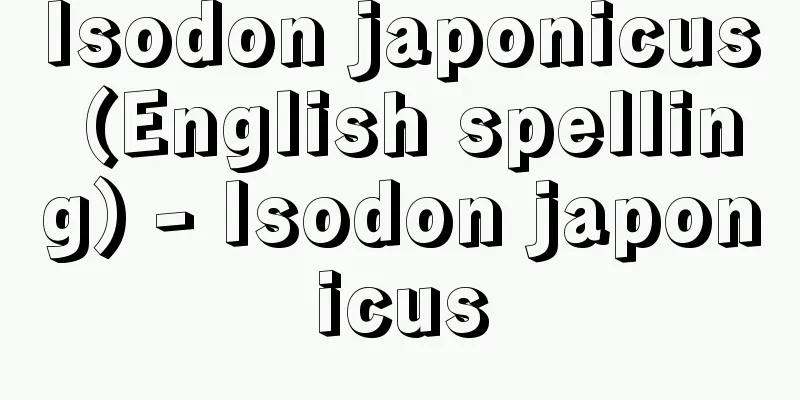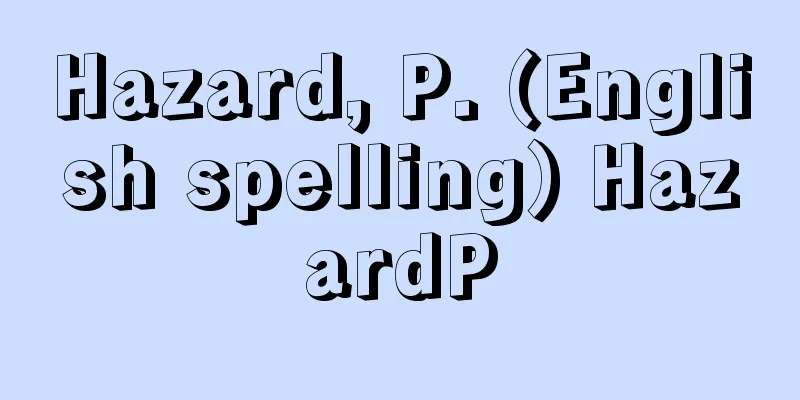Assad

|
Syrian politician. Current president. Born in Damascus as the second son of Hafez al-Assad (1930-2000). His father established a one-party dictatorship of Syria through a coup in 1970 and held the dictatorship for 30 years until his death in 2000. After graduating from the Faculty of Medicine at Damascus University, he worked as a military doctor (ophthalmologist), studied in the UK in 1992, and worked as a medical intern at a hospital in London. After returning to Syria, he went on to the staff course at the Military Academy in 1994, and in 1999 became a colonel attached to the General Staff. After his father's death in 2000, he was promoted to army general, and became the supreme commander of the army and secretary-general of the Baath Party. He succeeded to the presidency by a vote of confidence in a national referendum. His wife is a Syrian who grew up in the UK, and is a career woman who worked at a global investment bank after graduating from the University of London. In February 2011, as the Arab Spring, a movement calling for democratization, spread across the Middle East, citizen demonstrations calling for democratization also spread across Syria. In April of that year, Assad issued a presidential decree abolishing the state of emergency that had been in place for about 50 years, but adopted a policy of suppressing the situation by force, including indiscriminate firing on civilians and using tanks. Anti-government forces also began armed struggle, and the situation escalated into a large-scale civil war. On the one hand, Assad expressed his intention to engage in dialogue with the opposition, including constitutional reform, but on the other hand, he did not ease up on his thorough suppression, and refugees continued to flee to neighboring countries such as Turkey. Anti-Assad groups formed the National Council in Istanbul, Turkey, and a UN Security Council resolution condemning the Assad regime was vetoed by Russia and China, which have interests in Syria. In 2012, the civil war intensified, and the international community pressured Assad to step down, but the relationship between the anti-Assad National Council and the Free Syrian Army, which was mainly made up of deserters from the Syrian army, was not unified, and there were strong international doubts about the ability of the opposition to govern. Assad maintained his leadership based on the support of strong supporters and the military, with China and Russia as international backers, and suppressed the offensive of the rebel forces. The civil war continued to go back and forth. In January 2013, the rebel forces seized the largest airbase in the north, and pressure on the Assad regime intensified, but in March Assad announced the lifting of the state of emergency that had been in place for over a decade, and came up with a reform plan to cooperate with the people, and held on to his regime. In April 2013, suspicions were raised that the Assad regime was using chemical weapons such as sarin. While the use of chemical weapons could force the US to immediately change its response to military intervention, the rebels are joined by Islamic militants affiliated with Al-Qaeda, and the Assad regime claims that the rebels used chemical weapons. The UN Human Rights Commission's investigation found no evidence that the Syrian government used chemical weapons, and announced that it was highly likely that the rebels did so. Russia requested that Syria join the Chemical Weapons Convention. Assad made it clear that he would comply with this request, and announced his intention to join the Chemical Weapons Convention, and the US and Russia agreed to destroy Syria's chemical weapons, successfully preventing attacks on Syria by the US, France, and other countries. Assad skillfully used the international rivalry between Russia, China, and Western countries to secure his dictatorial regime, and in June 2014, he held a presidential election amid a civil war. Although it is said that voting only took place in areas under the control of government forces, he was re-elected with an overwhelming approval rating for a third term, demonstrating that his domestic support has not yet waned. Meanwhile, the civil war continues, and on the rebel side, the Islamic extremist group IS rapidly gains power and expands its territory, leading to fighting with other anti-Assad groups. IS spreads its influence across Iraq and Syria, declaring the establishment of a "caliphate" called the "Islamic State of Iraq and the Levant." IS has become a threat not only to the Middle East but to the entire international community, and the United States and other countries have begun bombing IS bases in Syria. Assad is now moving to cooperate with countries that have been hostile to IS in the past. Source : Heibonsha Encyclopedia About MyPedia Information |
|
シリアの政治家。現大統領。ダマスカスでハーフィーズ・アル=アサド(1930〜2000)の次男として生まれる。父は1970年,クーデターでシリアのバース党一党独裁政権を樹立し2000年の死まで30年にわたって独裁者の座を保持した人物である。ダマスカス大学医学部を卒業後,軍医として勤務(眼科医),1992年イギリス留学,ロンドンの病院で研修医として働く。帰国後,1994年,軍事アカデミー参謀コースに進み,1999年参謀本部付大佐。2000年父の死去を受けて,陸軍大将に昇進,軍最高司令官,バース党書記長に就任。国民投票による信任によって大統領職を継承した。夫人はイギリス育ちのシリア人,ロンドン大学卒業後世界的な投資銀行で働いた経験のあるキャリアウーマン。2011年2月,中東諸国で民主化要求運動(アラブの春)が拡大するなか,シリアでも民主化を求める市民デモが全土に拡大。アサドは,同年4月,約50年続いた非常戒厳令を撤廃する大統領令を出す一方,市民に対しても無差別発砲や戦車の投入など武力で鎮圧する方針をとり,反政府勢力も武力闘争を開始,事態は大規模な内戦に発展した。アサドは一方では憲法改正を含む野党との対話の意向を表明しながら,他方では徹底鎮圧の手をゆるめず,トルコなど近隣諸国への難民が相次いだ。反アサドグループはトルコのイスタンブールで国民評議会を結成,国連安保理のアサド政権への非難決議はシリアに権益を持つロシアと中国が拒否権を行使し,否決された。2012年,内戦は激化の一途をたどり,国際社会もアサド辞任に圧力をかけたが,反アサドの国民評議会とシリア軍からの脱走兵を中心とする自由シリア軍の関係も一体と言えず,反体制側の政権担当能力を疑問視する見方も国際的に根強く存在した。アサドは中国・ロシアを国際的な後ろ盾として,強固な支持勢力と軍の支持を基礎に指導力を維持,反政府軍の攻勢を押さえ込み。内戦は一進一退の状況が続いた。2013年1月,反政府軍が北部の最大の空軍基地を制圧,アサド政権への圧力は強まったが,アサドは3月,十数年続いている非常事態宣言の撤廃を表明,国民との協調をはかる改革計画を打ち出し,政権を持ちこたえた。2013年4月アサド政権がサリンなど化学兵器を使用しているという疑惑が指摘された。化学兵器の使用は米国の対応を一気に軍事介入に変えさせる可能性がある一方,反政府軍にはアル・カーイダ系イスラム武装勢力も加わっており,アサド政権は反政府勢力が化学兵器を使用したと主張。国連人権委員会の調査は,シリア政府により化学兵器を用いた根拠が発見されず,反政府勢力が使用した可能性が高いと発表。ロシアはシリアが化学兵器禁止条約に加入することを要請。アサドはこれに応じる姿勢を明らかにし,化学兵器禁止条約への加入を表明,シリアの化学兵器廃棄に向けて米ロが合意し,アメリカ,フランスなどによるシリア攻撃を回避させることに成功した。アサドはロシア・中国と西欧諸国の国際的対抗関係を巧みに利用して独裁体制を確保し,2014年6月には内戦下で大統領選挙を実施,実際は政府軍制圧下の地域のみでの投票といわれるが,圧倒的支持率で3選され,国内支持が依然衰えていないことを誇示した。その間も内戦は続き,反政府側ではイスラム過激派組織ISが急速に力を持ち支配地域を拡大,他の反アサド組織との戦闘も起こった。イラク・シリアに勢力を広げたISは〈イラク・レバントのイスラム国〉という〈カリフ制国家〉の建国を宣言,ISは中東のみならず国際社会全体の脅威となり,アメリカをはじめとする有志連合はシリアのISの拠点にも空爆を開始した。アサドは対ISでこれまで敵対してきた諸国とも連携する動きを見せている。
出典 株式会社平凡社百科事典マイペディアについて 情報 |
Recommend
Schreidrama
...This is also common to W. Hasencleber's &q...
Macleod, J.
…He opened a practice in London, Ontario, and tau...
Expert witness - Kantei Shonin
A person who testifies to a court about past facts...
Ryukyu Paper
Washi paper is produced on the main island of Okin...
cantiga
...As Christianity took root north of the Alps, h...
Glide angle
…Gliders usually do not have propulsors, and ther...
Teotihuacan
…The culture that had a great influence on variou...
Echigo Nagao Clan
…This was a rapid development that accompanied th...
Ki no Tsurayuki - Snowfall
A poet of the early Heian period. Famous for bein...
Augmented Wings - Augmented Wings
...There are various types, such as upper surface...
Alpes
… [Topography, Climate] A large mountain range th...
Kyudo - Archery
overview Kyudo is a unique Japanese archery cultu...
Old middle class - Middle class
The new middle class is a social class that exists...
Educational Program - Kyoyobangumi
… [Program classification] (1) Programs can be br...
Divine Fire
Incidents of arson against provincial and county ...









